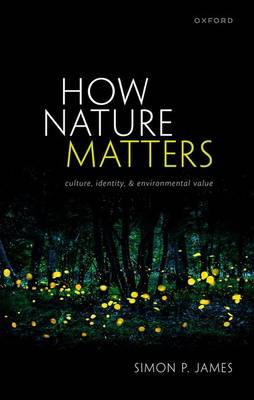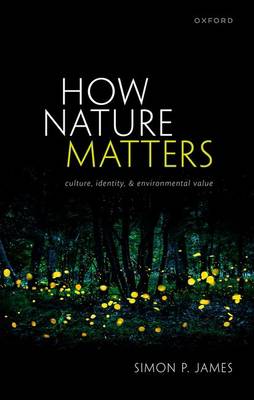
- Retrait gratuit dans votre magasin Club
- 7.000.000 titres dans notre catalogue
- Payer en toute sécurité
- Toujours un magasin près de chez vous
- Retrait gratuit dans votre magasin Club
- 7.000.0000 titres dans notre catalogue
- Payer en toute sécurité
- Toujours un magasin près de chez vous
132,45 €
+ 264 points
Description
HOW NATURE MATTERS presents an original theory of nature's value based on part--Lwhole relations. James argues that when natural things have cultural value, they do not always have it as means to valuable ends. In many cases, they have value as parts of valuable wholes -- as parts of traditions, for instance, or cultural identities. James develops his theory by investigating twelve real-world cases, ranging from the veneration of sacred trees to the hunting of dugongs. He also analyses some key policy-related debates and explores various fundamental issues in environmental philosophy, including the question of whether anything on earth qualifies as natural. This accessible, engagingly written book will be essential reading for all those who wish to understand the moral and metaphysical dimensions of environmental issues.
Spécifications
Parties prenantes
- Auteur(s) :
- Editeur:
Contenu
- Nombre de pages :
- 184
- Langue:
- Anglais
Caractéristiques
- EAN:
- 9780198871613
- Date de parution :
- 25-11-22
- Format:
- Livre relié
- Format numérique:
- Genaaid
- Dimensions :
- 145 mm x 217 mm
- Poids :
- 362 g

Les avis
Nous publions uniquement les avis qui respectent les conditions requises. Consultez nos conditions pour les avis.






